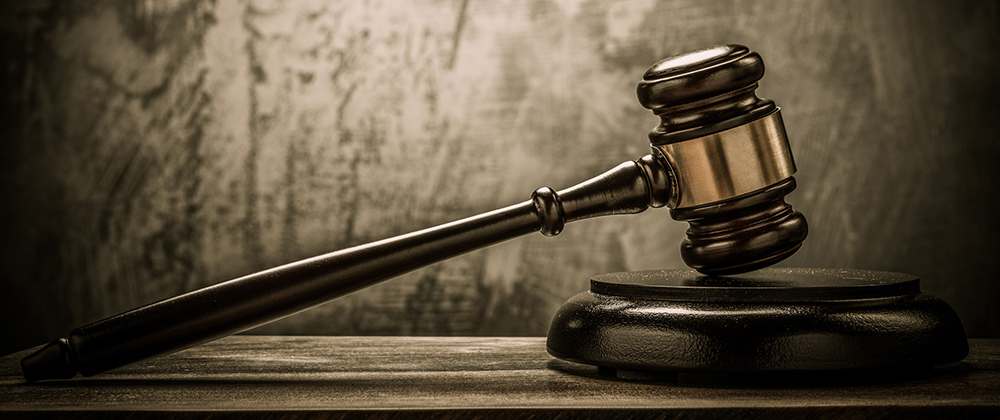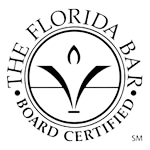Help from a Saint Lucie Stalking Lawyer
In Florida, charges of stalking or aggravated stalking can severely disrupt your life. In some cases, people might be accused of stalking by others who are mistaken about their motives and actions. If you are facing stalking or aggravated stalking charges, you should speak to a Port Saint Lucie stalking lawyer at Kirschner & McEnery Law as soon as possible. Our experienced Saint Lucie criminal defense attorneys are strong advocates for people who are accused of crimes and can review your situation to identify potential defenses to the charges you are facing. Here is some information about the various types of stalking charges in Florida and their potential penalties.
How Is Stalking Defined in Florida?
The crime of stalking is defined in § 784.048, Fla. Stat. (2022) as occurring when someone willfully and maliciously follows, harasses, or cyberstalks another person while making a credible threat. This involves engaging in a course of conduct over a period of time that causes the victim to experience emotional distress and that doesn’t have a valid purpose. A credible threat includes a nonverbal or verbal threat that is sent by electronic means or is communicated nonverbally by the person’s actions over a period of time and causes the target to reasonably fear for their safety or the safety of their family members. Stalking is treated seriously in Florida and can lead to serious consequences if you are convicted.
What Are the Penalties for Stalking?
In Florida, stalking can be charged as a misdemeanor or felony, depending on the actions of the defendant. If you are charged with stalking or cyberstalking after repeatedly contacting, following, harassing, or cyberstalking the alleged victim, you could be charged with a first-degree misdemeanor. A conviction could lead to a sentence of up to 12 months in jail, a fine of $1,000, or both imprisonment and a fine.
You can be charged with felony or aggravated stalking if you stalk someone while also making a credible threat of injury to the alleged victim or their family members. If you are convicted of aggravated stalking, it is a third-degree felony. A conviction of aggravated stalking could lead to a prison sentence of up to five years, a fine of $5,000, or both imprisonment and a fine.
If you are charged with stalking or aggravated stalking, the alleged victim will likely request a restraining order. If a restraining order is issued by the court, you will be ordered to stay away from the victim and cease all contact, including through third parties or on the internet. If you are accused of stalking by your spouse or ex-spouse with whom you share children, your charges could also interfere with your ability to see your children.
Stalking and Domestic Violence
Under § 741.28, Fla. Stat. (2022), stalking can be charged as a crime of domestic violence based on the relationship you have with the alleged victim. While domestic violence isn’t a separate offense in Florida, it does act as a sentence enhancer that can carry enhanced penalties. Stalking is listed as one of the crimes that can qualify as domestic violence when the person you are accused of stalking has one of the following relationships with you:
- Spouse
- Former spouse
- Blood relative with whom you live or have lived
- Person who currently residing with you as a family
- Person who has resided with you as a family in the past
- Person with whom you share a child
How Stalking Charges Are Broken Down in the Stalking Statute
The stalking statute identifies several types of stalking offenses based on the victim and the defendant’s conduct. It also includes definitions of the terms included in the offense’s definition as follows:
- Harass – Engaging in a pattern of conduct targeted toward a victim that causes the victim to experience emotional distress and that doesn’t have a valid purpose
- Course/pattern of conduct – Repeated acts that happen over a period of time, including a short period, excluding constitutionally protected activities such as picketing or protesting
- Credible threat – A nonverbal or verbal threat that is communicated directly, via electronic communications, or implied by a pattern of actions that causes the victim to experience a reasonable fear that the victim or their family members are in imminent danger of death or injury when the perpetrator has the means to follow through on the threat
- Cyberstalk – Sending repeated messages or images online to the alleged victim or accessing the victim’s online accounts without their permission
Misdemeanor Stalking
Under § 784.048(2), willfully or maliciously harassing, following, or cyberstalking a victim over a period of time without a credible threat is a first-degree misdemeanor offense. This offense carries a penalty of a maximum of 12 months in jail and a $1,000 fine.
Aggravated Stalking Based on a Credible Threat
Under § 784.048(3), willfully or maliciously harassing, following, or cyberstalking a victim over a period of time while communicating a verbal or nonverbal credible threat is a third-degree felony aggravated stalking offense. This offense carries a penalty of a maximum of five years in prison and a $5,000 fine.
Aggravated Stalking While Under an Injunction for Protection
Under § 784.048(4), willfully or maliciously harassing, following, or cyberstalking a victim following the issuance of a protective injunction for domestic, dating, sexual, or repeated violence is third-degree aggravated stalking. This offense carries a penalty of a maximum of five years in prison and a $5,000 fine.
Stalking a Minor Younger than 16
Under § 784.048(5), willfully or maliciously harassing, following, or cyberstalking a minor younger than age 16 is aggravated stalking and can result in a sentence of up to five years in prison and a $5,000 fine.
Stalking After Certain Convictions
Under § 784.048(7), you can be charged with aggravated stalking if you willfully or maliciously harass, follow, or cyberstalk someone after you have been convicted of sexual battery, lewd or lascivious conduct with a minor, computer pornography, or traveling to meet a minor. This is a third-degree felony carrying up to five years in prison and a $5,000 fine. If you are convicted of aggravated stalking following a conviction for one of these offenses, your aggravated stalking sentence will be consecutive to the sentence imposed for the underlying offense.
Order of Protection
Under § 784.048(9)(a)-(b), the court must consider issuing a protective order against the defendant when they are convicted of stalking the victim. A protective order can be issued for up to 10 years based on the seriousness of the offense. This order can be issued by the court even if the defendant is sentenced to prison.
Sexual Cyberstalking
Sexual cyberstalking is a related offense that is found in § 784.049(2)(c), Fla. Stat. (2022). This offense is commonly known as revenge porn and involves posting explicit images of the victim online with their identifying information and without their consent. A first offense of sexual cyberstalking is a first-degree misdemeanor with a maximum sentence of 12 months in jail and a $1,000 fine. A second or subsequent offense is a third-degree felony carrying up to a maximum of five years in prison and a $5,000 fine.
Violating a Protection Order for Stalking or Cyberstalking
If a protection order has been issued against you for stalking or cyberstalking an alleged victim, violating that order can result in additional charges under § 784.0487, Fla. Stat. (2022). You can be charged with violating a protection order against stalking or cyberstalking if you do any of the following things:
- Go within 500 feet of the alleged victim or their residence, place of employment, school, or any other location designated by the victim or their family in the request for a protection order
- Stalk the victim
- Communicate a threat to the victim
- Contact, telephone, or send messages to the victim either directly or through a third party
- Go within 100 feet of the victim’s car even if the vehicle is unoccupied
- Destroy or deface the victim’s property
- Refuse to give up firearms if ordered to do so by the court
This offense can be charged as a first-degree misdemeanor carrying up to one year in jail and a fine of $1,000. However, you can be charged with a third-degree felony with a potential punishment of five years in prison and a $5,000 fine if you have been convicted of violating a protection order two or more times in the past.
Defending Against Stalking, Aggravated Stalking, or Cyberstalking Charges
If you have been accused of stalking, aggravated stalking, or cyberstalking in Florida, you should consult a Port Saint Lucie cyberstalking attorney immediately at Kirschner & McEnery Law. Our attorneys have years of experience defending against stalking allegations and can carefully review what happened in your case. While stalking allegations are serious, you can still defend against them with the help of an experienced lawyer. We have established a long record of successful outcomes for our clients and will vigorously defend you against your charges. Contact us today for a consultation by calling (772) 489-8501.











